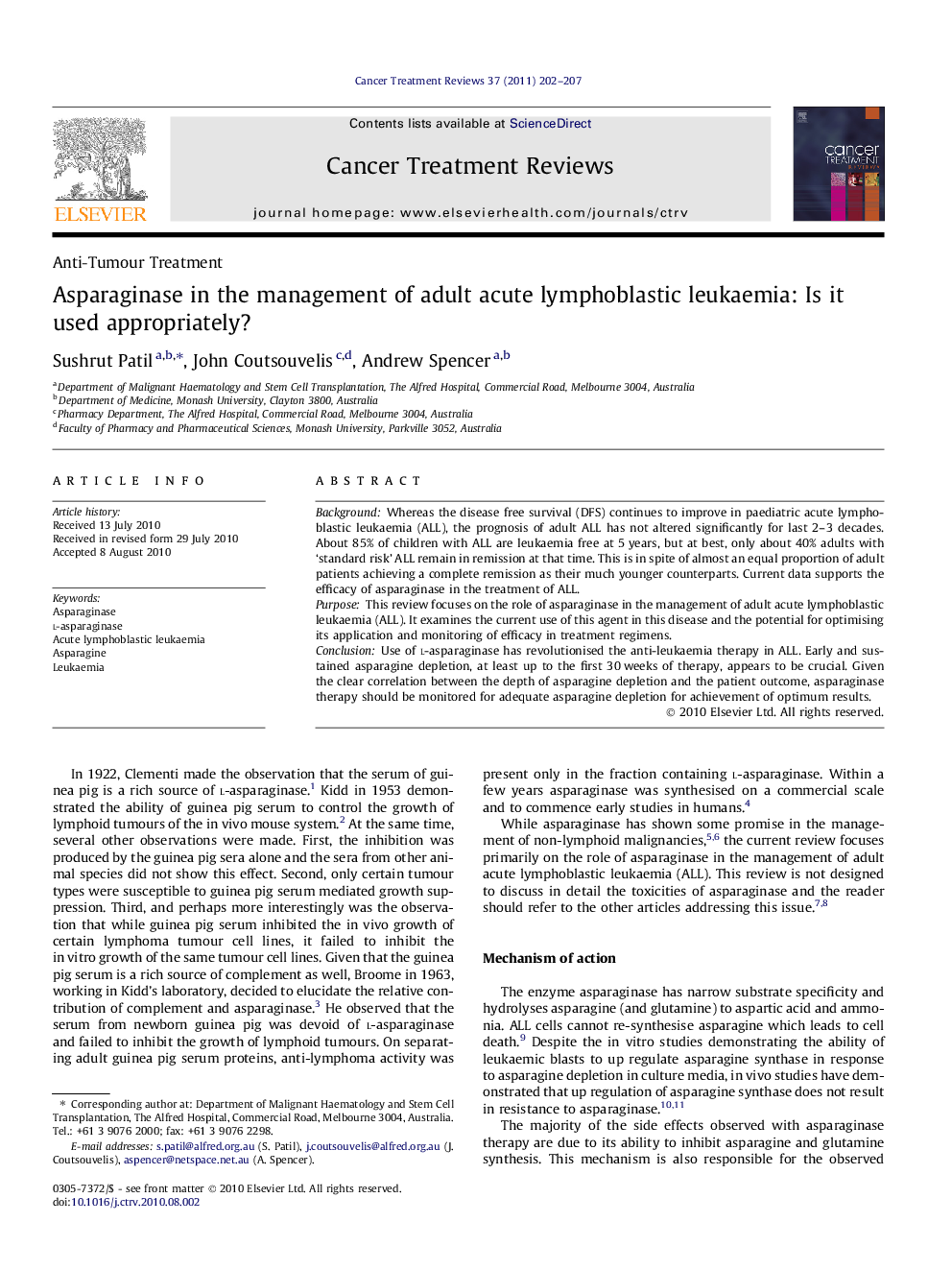| Article ID | Journal | Published Year | Pages | File Type |
|---|---|---|---|---|
| 3980090 | Cancer Treatment Reviews | 2011 | 6 Pages |
BackgroundWhereas the disease free survival (DFS) continues to improve in paediatric acute lymphoblastic leukaemia (ALL), the prognosis of adult ALL has not altered significantly for last 2–3 decades. About 85% of children with ALL are leukaemia free at 5 years, but at best, only about 40% adults with ‘standard risk’ ALL remain in remission at that time. This is in spite of almost an equal proportion of adult patients achieving a complete remission as their much younger counterparts. Current data supports the efficacy of asparaginase in the treatment of ALL.PurposeThis review focuses on the role of asparaginase in the management of adult acute lymphoblastic leukaemia (ALL). It examines the current use of this agent in this disease and the potential for optimising its application and monitoring of efficacy in treatment regimens.ConclusionUse of l-asparaginase has revolutionised the anti-leukaemia therapy in ALL. Early and sustained asparagine depletion, at least up to the first 30 weeks of therapy, appears to be crucial. Given the clear correlation between the depth of asparagine depletion and the patient outcome, asparaginase therapy should be monitored for adequate asparagine depletion for achievement of optimum results.
